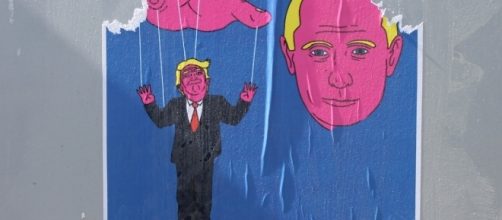In May, in the middle of a steady flow of "leaks" about the trump administration, it was revealed that White House senior advisor and the President's son-in-law jared kushner, wanted to set up back-channel communications to Russian officials. The response to these reports by many experts -- former and current U.S. government officials -- was that setting up any communications with the Russians or any other foreign nation was not out of the ordinary. On May 28, Secretary of Homeland Security John Kelly played down the news during an interview on Meet the Press.
Jared Kushner's back-channel suggestion
Former Director of National Intelligence (DNI) James Clapper was also a guest on the same program where he said that he was concerned with the nature of the Trump campaign's approach to the Russians. The details on the effort by Kushner was that he wanted to establish that back-channel but from within the jurisdiction of a Russian compound or compounds in the United States so that U.S. authorities could not intercept those communications. The request reportedly surprised the Russian Ambassador to Washington, Sergei Kislyak, who approached to Kremlin officials with the request.
The meeting where this discussion took place reportedly involved Kushner, Kislyak, and Gen.
Michael Flynn who would eventually be forced to resign in February over other similar but unrelated communications with Kremlin officials which in a way, could also be seen as Flynn doing what Kushner wanted to do without the infrastructure. As Blasting News reported -- Clapper said that when he was the DNI, that they did not have any evidence of collusion between the Trump campaign and Russian officials. But during his interview on Meet the Press, he said that they had gotten rid of 35 Russian intelligence operatives under former President Obama's sanctions at the end of December.
Kremlin demands lifting of sanctions
Russian diplomats from certain embassies in the United States were ordered to leave the U.S.
immediately due to those sanctions, which was later discovered to have taken place at the same time that Michael Flynn had made calls to Kislyak. It was learned that on the same day, he told Russian officials to wait until President Trump was in office before they could start rolling back President Obama's sanctions. The Department of Justice's acting Attorney General Sally Yates later warned the White House that Flynn was vulnerable to national security, a warning that was ignored. She was later fired by the White House.
In the same week that reports about Kushner's request were circulating, Russian President Vladimir Putin demanded that the United States reinstate diplomats back to their compounds on American soil or they would retaliate.
While there are no details as to what they meant by their threats, it's already anticipated that they would continue to interfere with upcoming American elections as the intelligence community determined that they did last year and perhaps, will continue to hack into U.S. domestic infrastructure and other infrastructure overseas.
Investigating Trump administration
An investigation on the Trump campaign has now taken the form of a criminal investigation which is headed by special prosecutor Robert Mueller, officially, for obstruction of justice. Due to the leaking of information that shows that President Trump had recently attempted to interfere and obstruct investigations on him, Trump has tried to discredit the special counsel through character assassination, and with threats of firing him as well.
Part of the considered obstruction has been with him firing government officials that have been investigating him as well. Over the past few weeks, Putin had even suggested that if Russians did hack the 2016 Presidential election, that they could have been conducted by patriots. Many consider this the first admittance by Putin of Russian interference.


